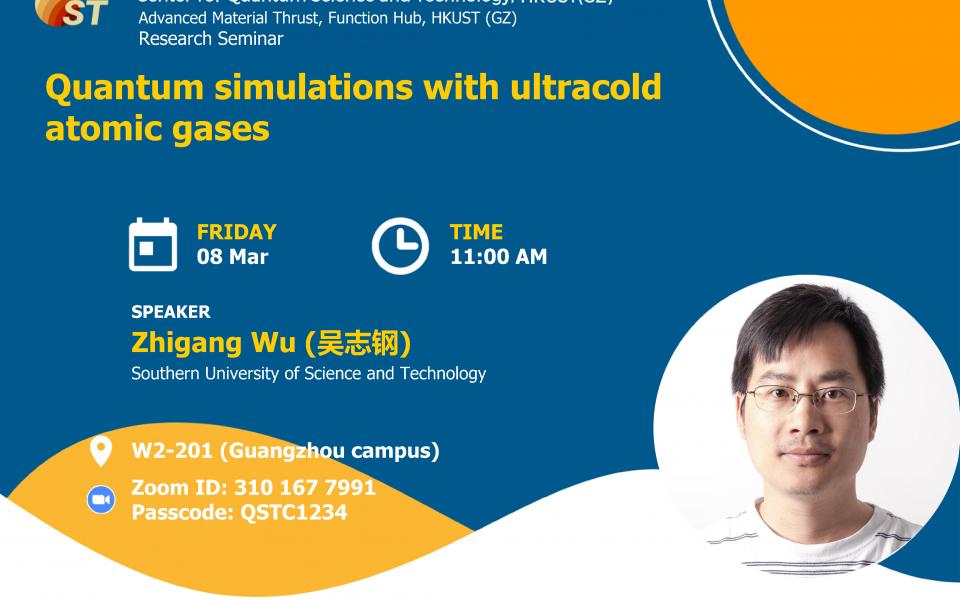Quantum simulations with ultracold atomic gases
Supporting the below United Nations Sustainable Development Goals:支持以下聯合國可持續發展目標:支持以下联合国可持续发展目标:
Quantum simulation is to use a highly controllable quantum system to simulate some other physical system which is experimentally less accessible to probes and/or theoretically insusceptible to classical computation tools. Its objective is to provide a deeper understanding of the latter system through the experimental investigation of the former. In recent years, ultracold atomic gases have emerged as a versatile platform for quantum simulation, shedding light on many important problems in condensed matter physics, high energy physics and even cosmology. In this talk, I will present a few of such examples and explain, from a theoretical perspective, how ultracold atomic systems can be used as quantum simulators to study condensed matter phenomena such as superconductivity and magnetism.
Zhigang Wu is an associate researcher at Institute for Quantum Science and Engineering, Southern University of Science and Technology. He obtained his PhD from Queen’s University (Canada) in 2013 and did his postdoc at Aarhus University (Denmark) and Tsinghua University before joining his current institute in 2018. His research interests are quantum many-body theories of ultracold atomic gases and strongly correlated quantum materials, with a particular interest towards using the former system to achieve quantum simulations of the latter.
